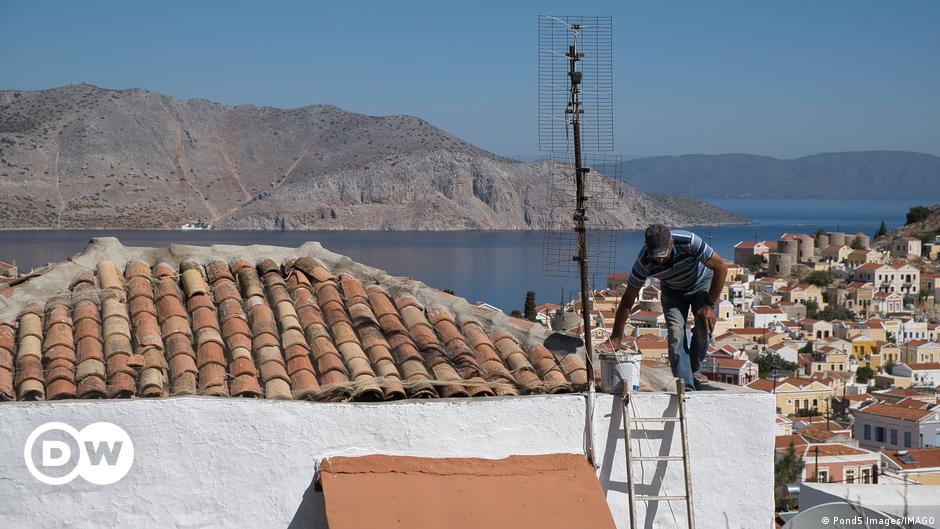- cross-posted to:
- [email protected]
- [email protected]
- cross-posted to:
- [email protected]
- [email protected]
From the construction industry to the tourism sector, Greek employers cannot find the staff they need. The government’s solution: longer working hours. A new law enables employers to implement a six-day work week
After 15 years of recession and austerity and three rescue packages that came with tough conditions attached, labor in Greece is no longer strictly regulated.
Collective agreements have been frozen for years, and in many businesses, staff work on the basis of individual employment contracts.
While the 40-hour work week is still officially in place, employers are permitted to require staff to work up to two unpaid hours per day for a limited period in return for more free time.
In theory, this additional work is voluntary. In reality, however, workers in many businesses and workplaces are forced to work longer hours without receiving any form of compensation.
The authorities — which are themselves short-staffed — rarely carry out checks to make sure that labor law is being observed. Making sure that the authorities can do such monitoring tasks effectively is not a priority for the conservative government of Prime Minister Kyriakos Mitsotakis.
But even before the law on the six-day work week comes into force on July 1, Greek workers work longer hours than any other workforce in Europe. With an average 41 hours per week, they work more than all other EU citizens, according to the EU’s statistics agency, Eurostat. What’s more, the pay they get for these long hours is low by European standards.
With a minimum monthly wage of €830($887), Greece ranks 15th in the EU in this respect. In terms of purchasing power, it ranks second last in Europe.



Yes they do. Did you know, in healthcare, they can do this with all the nurses in more than half the states? It’s about whether or not your state has rules against it. The ones who have restricted it recognize how dangerous it is for patient safety. Kids have died because of errors made in these scenarios. And that’s just the publicized court case stuff. I’m sure grandma, with a no CPR choice logged in her chart, gets swept under the rug or not noticed as an aberration.
Hospital administration is cheap so they’ll use it as a standard staffing strategy rather than call an outside, more expensive agency, to fill in, when the state lets them.
These are usually the same states that do not have lunch break laws.
So you can get a nurse: post-surgical, ICU, ER, or elsewhere who hasn’t slept in 24hrs. Hasn’t eaten anything in 15hrs. Maybe longer, because these people have kids and go to class. There’s no sleeping between call lights, they have to be attentive for the duration.
They’re tapped on the shoulder about an hour or two before shift end and told they’re staying. On penalty of abandonment on their license.
Idk about you, but I can’t read words at about 18hrs. Working tired is like working drunk. This is scary.
That’s what I want when I’ve been in a bad car accident and need to be hospitalized. My safety in the hands of one person who is in their 21st hour awake and hasn’t eaten for 10-12hrs because nothing that sells food is open at night, including the hospital cafeteria. Even the food prep crowd is screwed on this one.
Another fun fact. At night, hospitals run with a skeleton crew of docs. Normally, this is fine. You have competent help, read: nurses, who can see and predict the patient having problems and can then call the doc, or page an emergency overhead and get even more people for the patient. Enter mandatory overtime nurse. How well is he going to do on this while essentially working drunk?
But hey, if it saves corporate a buck then it’s worth playing this game of Russian roulette, amiright?
Well I didn’t know about any of that and that’s all awful.
Makes me upset healing people has been twisted so much. Shocking there’s anyone left in the field under those conditions.